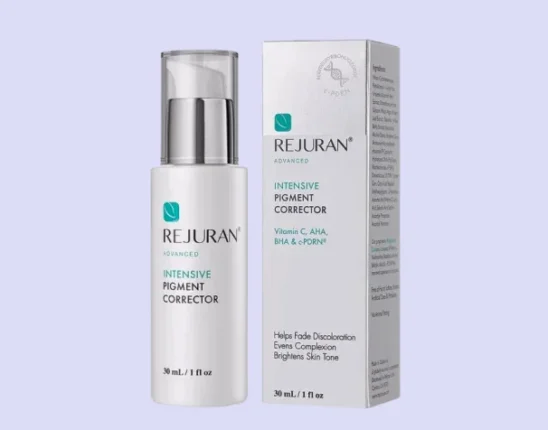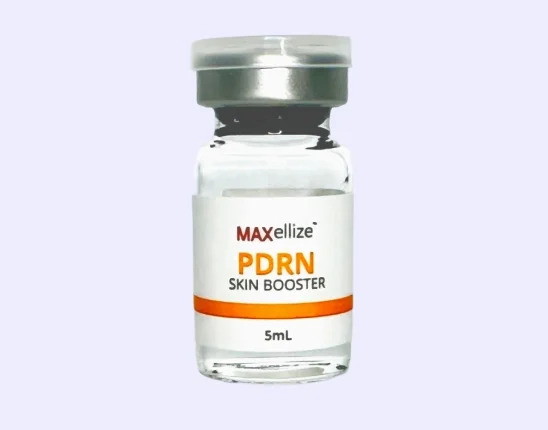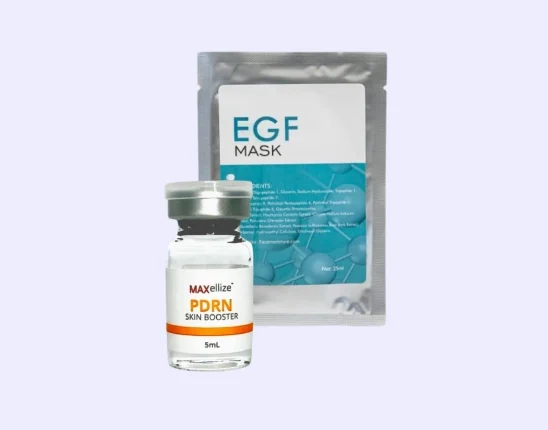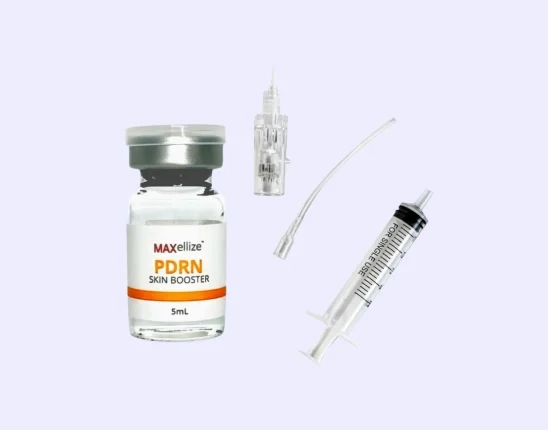Growth factors are biologically active molecules capable of cell proliferation and growth. They play a role in wound healing and other regenerative processes, making them a widely used group of molecules in regenerative medicine. An example of a growth factor is the hepatocyte growth factor.
So what’s a hepatocyte growth factor? Hepatocyte growth factor (HGF), also called scatter factor (SF), is a growth factor secreted by mesenchymal cells to exert its effects primarily on epithelial cells and endothelial cells. As demonstrated in animal models, functions on embryonic organ development and adult organ regeneration, particularly on liver regeneration.
What’s A Hepatocyte Growth Factor?
The hepatocyte growth factor protein is an 84 kDa-growth factor that can be derived from rat platelets using heparin-affinity chromatography. It may also be isolated from plasma. It may also be detected from the cell culture medium of mesenchymal stem cells.
HGF is named as such because it was demonstrated to stimulate liver cell proliferation of the primary culture of a rat model, consistent with its hepatotropic factor activity in liver regeneration. It also has angiogenic factor activities.
Structure
Upon expression of the hepatocyte growth factor gene, HGF is secreted in an inactive form by stromal cells such as fibroblasts, macrophages, and renal mesangium. It’s derived from a single-chain precursor of 728 amino acid residue which is processed via proteolytic cleavage to make up the 69 kDa α-subunit and a 34 kDa β-subunit linked by disulfide bonds.
Its activation upon secretion is facilitated by a hepatocyte growth factor activator such as the urokinase-type plasminogen activator that cleaves it at a specific area between arginine and valine amino acid residues.
c-Met As An HGF-Receptor
The hepatocyte growth factor receptor is c-Met, a proto-oncogene identified from the human osteogenic sarcoma cell line. c-Met expression encodes a 190 kDa cellular protein that undergoes further processing to arrive at a heterodimer made up of a 50 kDa β-chain and 145 kDa α-chain. The membrane-spanning structural domains of receptor tyrosine kinases are present in the β-chain of the c-Met proto-oncogene product.
Role Of Hepatocyte Growth Factor On The Human Body
The hepatocyte growth factor is necessary for the regeneration of the liver, kidneys, and lungs. It’s also necessary for the development of these organs, demonstrated by the embryonic lethality of individuals with defective hepatocyte growth factor genes. This effect of HGF on tissue repair is based on the degree or kind of injury to these tissues.
Liver Regeneration
HGF protein level is observed to be increased during hepatic injuries, with this increased level accumulating only in the injured organs. As a response to 70% hepatectomy, distant organs such as the kidneys, lung, and spleen produce HGF during liver injury as a response to HGF-inducers such as secretions from the endocrine system.
On the other hand, it’s the HGF-c-Met axis that’s involved in liver repair in acute hepatitis, where HGF is produced by sinusoidal cells such as Kupfer cells in a paracrine manner.
Renal Regeneration
An increase in the rate of renal regeneration is associated with an increase in HGF mRNA and protein levels. In fact, it was observed that the addition of exogenous HGF increased the number of regenerating tubular cells after nephrectomy while the addition of anti-HGF antibodies reduced this regeneration activity. Similarly, the regenerative activity of tubular cells is increased upon the addition of rh-HGF in mice treated with renal toxins.
Lung Regeneration
It was observed in animal models that acute lung injury in rodents caused the increase in the HGF mRNA and protein levels to facilitate the regeneration of lung alveolar and bronchial epithelium.
Administration of an outside source of HGF also improved this regeneration after the lung injury, while administration of anti-HGF antibodies resulted in a decrease in the proliferation of alveolar cells.
Similarly, it was demonstrated in a study that lung endothelial cell apoptosis is increased upon injury by lipopolysaccharide while it’s decreased upon addition of mesenchymal stem cells that served as a source of HGF. Being the first barrier to protect the injured lung from further damage, the lung endothelium is also the one that’s repaired upon MSC therapy.
Mucosal Repair In The Gastrointestinal Tract
Repair of gastric injuries brought by chemical and mechanical stress from digestion and absorption of food may be facilitated and hastened by the administration of exogenous HGF. On the other hand, the inhibition of c-Met activation by anti-HGF antibodies results in the suppression of the mechanisms involved in the repair of the gastric mucosa.
Moreover, HGF and c-Met form a protective molecular surveillance system against ulcers, wherein HGF is continuously expressed in the stromal cells of the submucosa while c-Met is over-expressed in the mucosal epithelium.
Nerve Regeneration
It was demonstrated in a study that nerve regeneration is governed by HGF because high levels of HGF and c-Met phosphorylation were observed in injured peripheral nerves. Administration of c-Met inhibitors is also another evidence of the role of HGF and c-Met in nerve regeneration because the axonal regeneration process was suppressed when it was administered.
Wound Healing
The need for HGF for the self-repair of the injuries of skin, muscles, and cartilage was also demonstrated, with the administration of anti-HGF antibodies also hindering this regenerative process.
Other Physiological Functions In Other Organs
Aside from its role in the regeneration of organs such as the liver, kidneys, lungs, and gastrointestinal tract, HGF also has a role in maintaining homeostasis or balance by acting through the different mechanisms of metabolic processes of numerous organs. It’s also capable of mediating hematopoiesis, the process of producing new blood cellular components.
- Metabolic Homeostasis – In the pancreas, HGF is produced by the α-cells. HGF regulates the secretion of insulin pancreatic β-cell to prevent hypoglycemia or the excessive lowering of the blood sugar levels.
- Hematopoiesis – In the cell culture medium, it’s observed that the proliferation and colony formation of the starting components of hematopoiesis are stimulated by HGF, establishing the role of HGF in hematopoiesis. In fact, mice without c-Met are observed to have impaired hematopoiesis.
Hepatocyte Growth Factor As A Mediator For Organ Development
HGF is an important component of liver development in embryos. In fact, hepatocyte growth factor gene knockdown experiments show the embryonic lethality of the absence of HGF in mice, in that embryonic mice without HGF failed to develop and die. These embryonic mice have small liver and impaired development of placental trophoblastic cells.
Therapeutic Implications of HGF
The self-defense system associated with the internal production of HGF isn’t enough to support regeneration because it’s short-lived, such that organ failure still proceeds after the transient surge in HGF production. Supplementation of HGF then is a good way to mitigate the effects of organ diseases, especially since HGF production is said to be decreased in the elderly who are susceptible to these diseases.
Acute Diseases
HGF may improve the outcomes of acute diseases by decreasing the lethality of the following diseases:
- Fulminant hepatitis – HGF inhibited hepatic failure by blocking apoptosis or programmed cell death of liver cells.
- Sepsis in acute renal failure – HGF exerts anti-inflammatory effects in the renal epithelium of individuals with ARF.
- Acute lung injury – HGF prevented the first appearance of acute lung injury caused by sepsis or transient ischemia.
- Myocardial infarction – HGF serves as an angiogenic factor that stimulates angiogenesis and exerts protective effects on the heart muscles.
Chronic Diseases
HGF may improve the outcomes of chronic diseases through regenerative, anti-apoptotic, and anti-fibrotic effects, as seen in the following:
- Fibrotic diseases – The lethality of fibrotic diseases such as liver cirrhosis are decreased by HGF by increasing the concentration of ECM-degrading enzymes, leading to the removal of the extracellular matrix and repair of liver cells. Similarly, factors that induce cell fibrosis by the formation of the extracellular matrix are blocked or induced to die by HGF, such as in the case of renal and lung fibrosis.
- Obstructive diseases – An example of obstructive disease is emphysema, which results from decreased levels of HGF. Supplementation of HGF allows alveologenesis and angiogenesis in the lungs, thus improving the health outcomes of emphysema.
Inflammatory And Immunologic Diseases
HGF may improve the outcomes of inflammatory and immunologic diseases by directly affecting the immune cells, demonstrated in the following examples:
- Systemic inflammatory response syndrome (SIRS)
- Asthma
- Immune tolerance after transplantation
- Autoimmune diseases
Neural Diseases
HGF may improve the outcomes of neural diseases by improving axon outgrowth and the survivability of brain cells, as seen in the following:
- Cerebral infarction (CI)
- Neuro-degenerative disease (ND)
- Spinal cord injury (SCI)
PEP Factor: The Best Formulation Containing Growth Factors And Other Natural Ingredients
Hepatocyte growth factor (HGF) is a hepatotropic factor with applications in regenerative medicine due to its biological effects leading to tissue repair, not just in the liver, but also in other organs such as the skin, muscle, and cartilage. It’s also vital for homeostatic mechanisms in several organ systems.
FACE Med Store’s PEP Factor is a ready-made formulation of natural ingredients working together to achieve the biological effects of scalp rejuvenation and skin rejuvenation. Its active ingredients include the basic fibroblast growth factor (bFGF) which is also a growth factor and is capable of stimulating the growth of cells, and copper peptide, which has antioxidant properties.
The PEP Factor is a topically applied formulation so it doesn’t bring the risks associated with treatments administered invasively or via injections. It can also be safely added to other treatments such as microneedling to achieve the optimal effect of reducing the appearance of thinning hair or helping you get brighter skin.
Shop For High-Quality Medical Supplies At FACE Med Store
Hepatocyte growth factor (HGF) is a growth factor that functions for regeneration and homeostasis upon binding to its c-Met receptor. Its biological effects aren’t confined to only hepatic cells as per its namesake, but it also exerts its effects on other organs of the body such as the kidneys, lungs, and skin.
At FACE Med Store, we sell only the best medical supplies that bring a plethora of therapeutic effects for your benefit. We also provide good customer service to help guide you in choosing supplies for all your needs. Contact us now at (800) 770-9083 or browse through our shop online and get the best deals for your medical needs.















